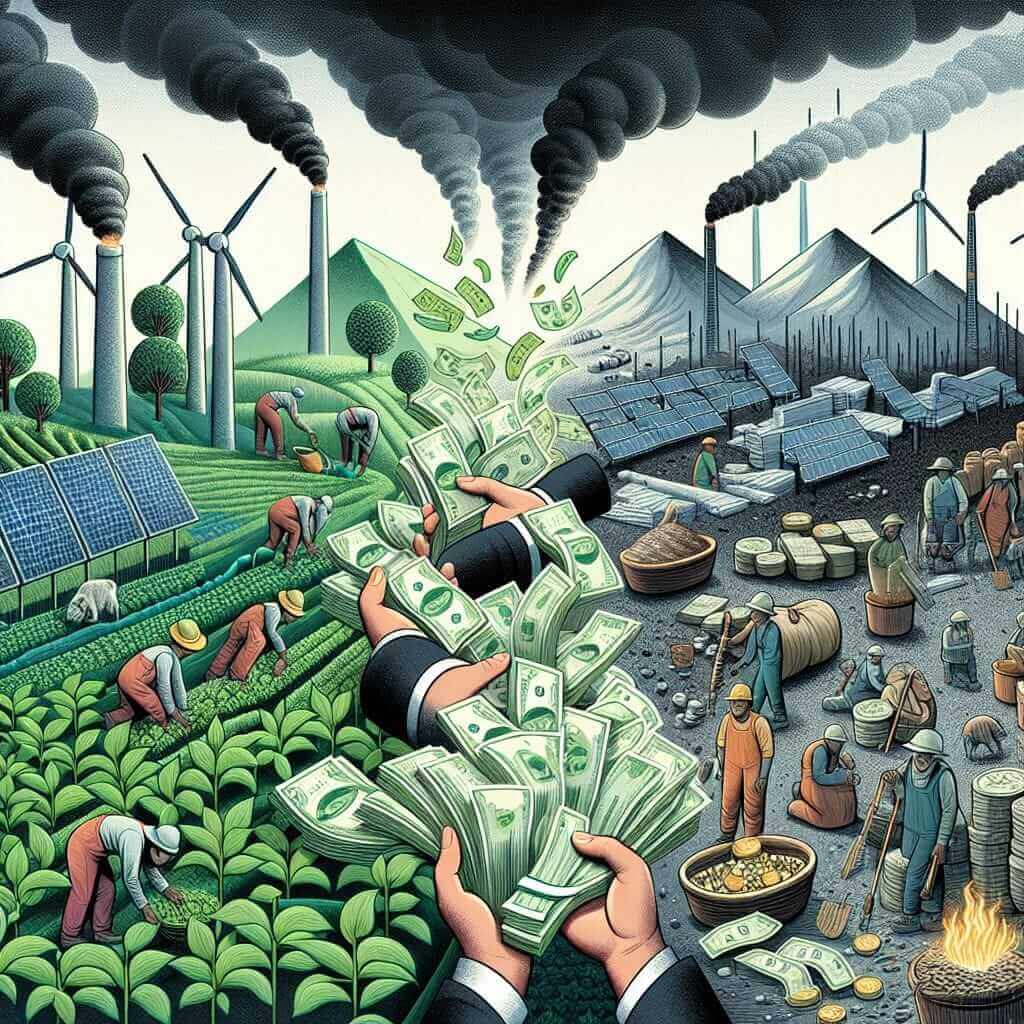Ethical investment, also known as socially responsible investment (SRI), has gained significant traction in recent years. This trend reflects a growing awareness among investors about the impact of their financial decisions on the environment and society. This article delves into the crucial role of ethical investment in fostering sustainable development. It analyzes a typical IELTS Writing Task 2 question on this topic, provides a band-8 sample essay, and offers valuable insights into vocabulary and grammar for crafting a high-scoring response.
IELTS Essay Question
Many people believe that ethical investment is the most effective way to promote sustainable development. To what extent do you agree or disagree?
Analysis of the Question
This question requires you to present your perspective on the effectiveness of ethical investment in driving sustainable development. You are expected to discuss whether you agree, disagree, or partially agree with the given statement. It’s crucial to provide well-supported arguments and examples to justify your stance.
Sample Essay
Ethical investment, which considers environmental, social, and governance (ESG) factors in decision-making, is increasingly regarded as a powerful tool for achieving sustainable development. While I acknowledge that ethical investment alone cannot solve all sustainability challenges, I firmly believe that it plays a pivotal role in promoting responsible business practices and fostering a more sustainable future.
Advocates of ethical investment argue that by directing capital towards companies committed to ESG principles, investors can incentivize positive change. When businesses realize that their financial success is linked to their social and environmental performance, they are more likely to adopt sustainable practices. For instance, an investment fund focused on renewable energy can accelerate the transition away from fossil fuels and contribute to mitigating climate change. Similarly, by divesting from companies with poor labor practices, ethical investors can pressure them to improve working conditions and uphold human rights.
However, some critics argue that the impact of ethical investment remains limited due to challenges in measuring and verifying companies’ ESG performance. Greenwashing, where businesses exaggerate their sustainability credentials, poses a significant obstacle. Furthermore, the financial returns from ethical investments may sometimes be lower compared to conventional investments, which could deter some investors.
Despite these challenges, I believe that the growing demand for ethical investment options empowers consumers and compels businesses to prioritize sustainability. Governments also have a crucial role in creating a supportive regulatory environment that encourages responsible investment practices. For example, mandatory ESG reporting requirements can enhance transparency and enable investors to make informed decisions.
In conclusion, while ethical investment faces certain limitations, its significance in driving sustainable development cannot be overstated. By aligning financial incentives with social and environmental goals, ethical investment can be a catalyst for positive change and contribute significantly to a more sustainable future.
Word count: 318 words

Writing Tips
- Vocabulary: Utilize a wide range of vocabulary related to ethics, investment, and sustainability. For instance, instead of repeatedly using “good” or “bad,” consider synonyms like “ethical,” “responsible,” “detrimental,” or “harmful.”
- Grammar: Ensure accurate use of complex sentence structures, including conditionals, relative clauses, and passive voice, to demonstrate grammatical range and accuracy.
- Structure: Follow a clear and logical structure, with an introduction, body paragraphs presenting your arguments, and a conclusion. Use cohesive devices like transition words and phrases to connect ideas smoothly.
Useful Vocabulary
- Ethical Investment (n.) /ˈeθɪkəl ɪnˈvɛstmənt/: Investment decisions that take into account the ethical, social, and environmental impact of the investment.
- Sustainable Development (n.) /səˈsteɪnəbəl dɪˈvɛləpmənt/: Development that meets the needs of the present without compromising the ability of future generations to meet their own needs.
- Governance (n.) /ˈɡʌvənəns/: The way that organizations or countries are managed at the highest level.
- Divestment (n.) /daɪˈvɛstmənt/: The act of selling off an asset or subsidiary.
- Greenwashing (n.) /ˈɡriːnˌwɒʃɪŋ/: Disinformation disseminated by an organization so as to present an environmentally responsible public image.
Conclusion
Mastering the art of writing about ethical investment in the context of sustainable development is crucial for IELTS Writing Task 2. By familiarizing yourself with the relevant vocabulary, understanding the nuances of the topic, and practicing your writing skills, you can confidently approach this essay type and achieve a high band score. Remember to practice writing essays on similar themes, such as corporate social responsibility, environmental conservation, and the role of government in promoting sustainability.